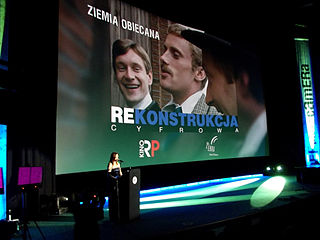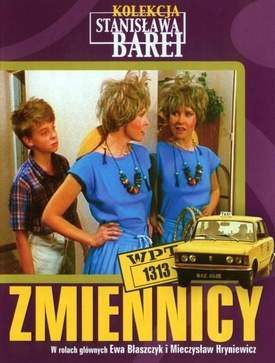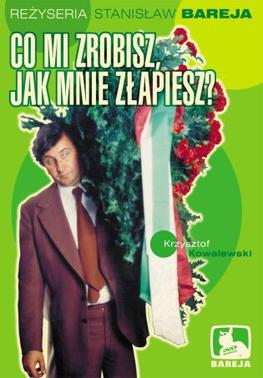
The history of cinema in Poland is almost as long as the history of cinematography, and it has universally recognized achievements, even though Polish films tend to be less commercially available than films from several other European nations.

Andrzej Witold Wajda was a Polish film and theatre director. Recipient of an Honorary Oscar, the Palme d'Or, as well as Honorary Golden Lion and Honorary Golden Bear Awards, he was a prominent member of the "Polish Film School". He was known especially for his trilogy of war films consisting of A Generation (1955), Kanał (1957) and Ashes and Diamonds (1958).

Ashes and Diamonds is a 1958 Polish drama film directed by Andrzej Wajda, based on the 1948 novel by Polish writer Jerzy Andrzejewski. Starring Zbigniew Cybulski and Ewa Krzyżewska, it completed Wajda's war films trilogy, following A Generation (1954) and Kanal (1956). The action of Ashes and Diamonds takes place in 1945, shortly after World War II. The main protagonist of the film, former Home Army soldier Maciek Chełmicki, is acting in the anti-Communist underground. Maciek receives an order to kill Szczuka, the local secretary of the Polish Workers' Party. Over time, Chełmicki increasingly doubts if his task is worth doing.

Stanisław Aleksy Tym is a Polish, actor, comedian, journalist and satirist, as well as a film and theatre director and writer.

Stanisław Sylwester Bareja was a Polish filmmaker. Some of his films have reached cult status in Poland.

Stanisław Ludwik Dygat was a Polish writer. His most famous novel, "Jezioro Bodeńskie", was written during World War II and published in 1946. All of his works are partly autobiographical.

Elżbieta Justyna Czyżewska was a Polish actress active in both Poland and the United States.

Zmiennicy is a Polish comedy TV series that aired from 1986–87. Many famous Polish actors appear in Zmiennicy.

What Will You Do When You Catch Me? is a Polish comedy film released in 1978, directed by Stanisław Bareja.
More Than Life at Stake, also known as Stakes Larger Than Life and Playing for High Stakes is a Polish black and white TV series about the adventures of a Polish secret agent in Soviet service, captain Hans Kloss, who acts as a double agent in the Abwehr during Second World War in occupied Poland.

Jerzy Duszyński was one of the most popular actors in a post-war Poland. He starred in a number of film productions as well as theatrical plays.
The Orchestra Conductor is a 1980 Polish drama film directed by Andrzej Wajda. It was entered into the 30th Berlin International Film Festival, where Andrzej Seweryn won the Silver Bear for Best Actor. It was also shown at the 1980 New York Film Festival.

Anna Nehrebecka-Byczewska is a Polish film actress and politician.

Przemysław Adam Gintrowski was a Polish composer and musician.
Zespół Filmowy "X" is a Polish film production studio, inaugurated on New Year's Day, 1972. The studio's formation was the brainchild of acclaimed Polish director Andrzej Wajda, who served as the Artistic Director for the duration of the studio's existence.

Jerzy Wójcik was a Polish cinematographer, author of screenplays and film and television director, professor of University of Silesia in Katowice and Leon Schiller National Higher School of Film, Theatre and Television in Łódź.
KADR is a major Polish film production and distribution company, founded in 1955 and still producing films as of 2016. Between its founding and 2003, KADR released 150 films in total, including many classics of Polish cinema.












